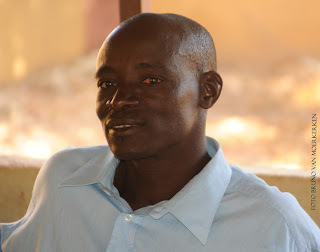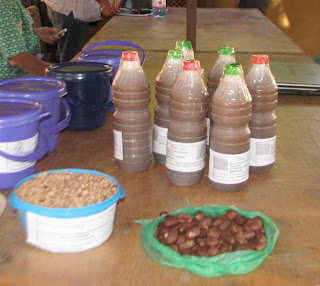A voice-based system for Zakary Diarra, farmer and honey producer in Mali
Discussion details
Zakary Diarra, farmer, beekeeper and honey producer lives in a small village named Bokuy-Mankoina in the south-east of Mali. In his village there is no internet connection. Zakary’s communication is based on voice, phone and radio. Since a few years a new approach, introduced by Malian NGO Sahel Eco, has changed the life of Zakary. Zakary benefits from a new mobile voice-based trading service. The idea of this service is to help farmers produce and sell more tree crops, such as honey and shea nuts and shea butter.

"Despite the food crises that affected the Sahel in recent times, food shortages are milder in areas with high density of trees. Smallholder farmers create more productive and drought-resilient farming systems by re-greening their lands." says Chris Reij from VU University Amsterdam. According to Mary Allen, from Sahel Eco, poor households can derive income from on-farm trees by selling tree produce like firewood, fruits, nuts and honey. Moreover, trees improve soil conditions and provide fodder for live-stock for a long period of time.
To improve the value chain of tree products, a voice-based trading service was built by developers from VU University Amsterdam, Web Foundation, and North-West University South Africa, together with the farmers, Sahel Eco and several village radio stations, including Radio Moutian, and Radio ORTM Segou, in a project named VOICES and an initiative named W4RA.

Zakary collects offerings from neighbouring farmers to aggregate them into group offerings. Using this voice-based service the offerings of honey and shea butter can easily be broadcast on the local radio. This service was nicknamed RadioMarché.
I asked Zakary's opinion about this initiative. Zakary replied: "My income from the sale of honey has almost doubled in one year, between 2010 and 2011. I have more food stability than before this project, I am now able to pay schooling for my four children and I could even buy a cart and a donkey, last year.
Without this project, I would be doing mainly regular farming, and I would have missed this great opportunity of becoming an entrepreneur and really selling honey. I am also determined to expand the number of beehives, and I advise others in the village to do the same, so that we as a group can meet the customers' high demand, and increase our honey production and the volume of our sales. I am very pleased with this trading service RadioMarché, which improved confidence and collaboration between honey producers and sellers. I am also pleased to be a contact person for the RadioMarché trading system, as this role is highly appreciated in my village. Some people now call me "Sozakary", which means "Zakary of Honey".
Log in with your EU Login account to post or comment on the platform.